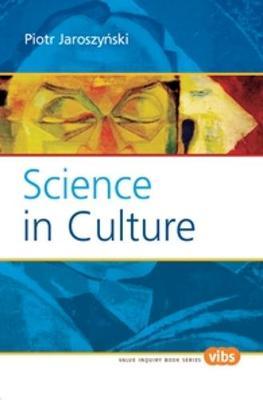Full Product Details
Author: Piotr Jaroszynski
Publisher: Brill
Imprint: Editions Rodopi B.V.
Volume: 185
Dimensions:
Width: 15.50cm
, Height: 2.00cm
, Length: 23.50cm
Weight: 0.553kg
ISBN: 9789042021365
ISBN 10: 9042021365
Pages: 328
Publication Date: 01 January 2007
Audience:
General/trade
,
General
Format: Paperback
Publisher's Status: Active
Availability: Out of print, replaced by POD

We will order this item for you from a manufatured on demand supplier.
Reviews
Science in Culture deserves to be studied as the masterful work it is in itself. It should also, however, be regarded as a seminal foundation for an evaluation of the postmodern condition of science. in: Review of Metaphysics, Vol. LXI, No. 2, December 2007 This is an important book that looks at how the concept of science has been changing over the course of centuries. ...[Jaroszynski] demonstrates how science, over time, became focused on serving utility and technocratic management rather than the idea of science being the search for truth. Jaroszynski's look at the ideologies of liberalism, communism, and fascism, as modern examples of how people are willing to use science as the primary tool of ideology in order to achieve their goals, is enlightening ... A well-organized work, derived from the evaluation of primary sources, very relevant to the university community at large. Highly recommended. in: CHOICE - Current reviews for academic libraries, Vol. 44, No. 11, July 2007 Who discovered science? What conditions the place of science in culture? ...Jaroszynski ... illuminates the non-scientific contexts of the controversy over science and shows the influence of science in culture. in: SciTech Book News, March 2007
Science in Culture deserves to be studied as the masterful work it is in itself. It should also, however, be regarded as a seminal foundation for an evaluation of the postmodern condition of science. - in: Review of Metaphysics LXI/2 (December 2007) This is an important book that looks at how the concept of science has been changing over the course of centuries. ...[Jaroszynski] demonstrates how science, over time, became focused on serving utility and technocratic management rather than the idea of science being the search for truth. Jaroszynski's look at the ideologies of liberalism, communism, and fascism, as modern examples of how people are willing to use science as the primary tool of ideology in order to achieve their goals, is enlightening ... A well-organized work, derived from the evaluation of primary sources, very relevant to the university community at large. Highly recommended. - in: CHOICE - Current reviews for academic libraries 44/11 (July 2007) Who discovered science? What conditions the place of science in culture? ...Jaroszynski ... illuminates the non-scientific contexts of the controversy over science and shows the influence of science in culture. - in: SciTech Book News, March 2007



